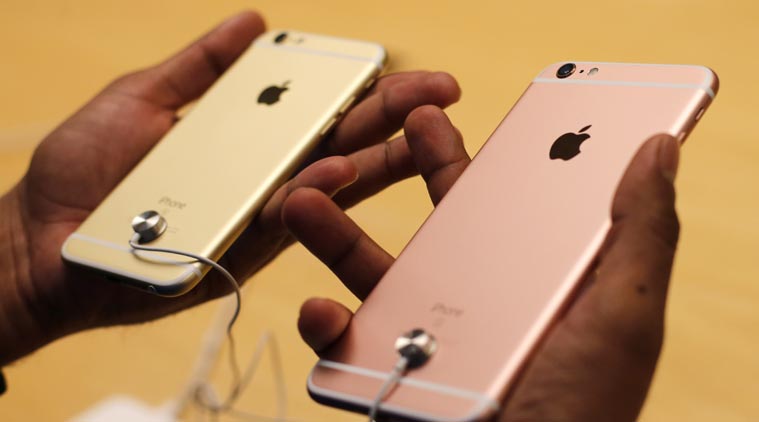GeekBench developer hints older iPhones slowing down due to iOS updates, battery issues
If your older iPhone 6s has slowed down in terms of performance, the reason could be the battery and the iOS 11 updates, according to a GeekBench post
 Apple iPhone 6s, iPhone 7 performance issues linked to battery, iOS update by GeekBench developer.
Apple iPhone 6s, iPhone 7 performance issues linked to battery, iOS update by GeekBench developer.
Is your older Apple iPhone 6s really slow these days? Well, on reason for the sluggish performance could be the battery and the iOS updates, according to a post by GeekBench developer John Poole. GeekBench is a popular benchmark testing app that rates the performance of smartphones across various parameters.
The GeekBenchpost draws from a Reddit post, which hinted that the iPhone performance was linked to the battery age. The Reddit post has seen over a thousand comments, with the main post arguing that Apple tends to slow down iPhones with low capacity batteries, especially devices like the iPhone 6s, iPhone 7, etc. According to Poole’s post for GeekBench, users with older iPhones saw the performance increase drastically as well as scores on GeekBench after they replaced batteries. Poole has shown on graphs the Geekbench 4 single-core scores for the iPhone 6s and the iPhone 7 running different versions of iOS.
In case of the iPhone 6s, which launched originally in September 2015, it looks like the phones running on iOS 10.2.0 appear more or less uniform in terms of scores, but for the same phone running on iOS 10.2.1 and iOS 11.2.0, there is one large peak in scores and smaller peaks around lower scores. The graph shared by Poole, shows that under iOS 11 this fluctuation in scores is much more pronounced.
In case of the Apple iPhone 7 scores under iOS 10.2.0, iOS 10.2.1, and iOS 11.1.2 appear identical, but the score distribution changes with iOS 11.2.0 and once again the fluctuation is similar to the Apple iPhone 6s series. The change in score performance is being linked to the iOS 11 update, according to the post.
According to Poole’s post, the problem gets worse for users as the phones and batteries age, which to be fair is expected in any smartphone as it gets older. The other issue, according to Poole is iOS and he writes, “the difference between 10.2.0 and 10.2.1 is too abrupt to be just a function of battery condition.” He argues that Apple has “introduced a change to limit performance when battery condition decreases past a certain point.”
The reason why Apple might have done is based on the Reddit post, where a user argued that the company did this because many iPhone 6s phones were shutting down unexpectedly, despite battery replacement. For those who remember, Apple had announced a battery replacement programme for some of the iPhone 6s series devices because the battery in these phones was not up to standard and likely to degrade faster, though the company had said it did not cause any safety issues.
However, Poole is arguing that the performance drop for iPhone 6, iPhone 6s, and also iPhone 7 is deliberate and will lead many users to wrongly believe this is due to slow down in CPU performance, instead of battery issues. He also argues that the change in iOS 11.2.0 has ensured a slower performance for iPhone 7 as well.
The slowdown in performance might convince people they need to upgrade the iPhone, instead of fixing the battery, argues Poole. For Apple, this might mean more users trying to upgrade. For the consumers though this might not be such good news. Apple has so far not commented on this GeekBench post.







